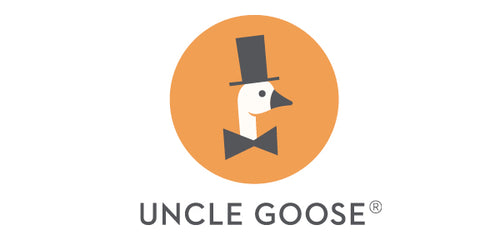
Five Vital Questions to Ask About Social + Environmental Impact
As a brand, Uncle Goose likes to tout our sustainable, earth-friendly practices. But let’s face it: no product on the face of the earth has zero environmental impact.
Sustainability isn’t something you can buy. You can’t put a sustainable brand’s product in your shopping cart and save the planet.
That’s because not-buying is more sustainable than buying. Reusing, recycling, and repurposing are more environmentally friendly than buying something new.
And yet, we often need to invest in new things. Customers who care will pause to ask five vital questions.
- How is the product sourced?
- Where is it made?
- How is it made?
- How is it delivered?
- Do I really need to buy it?
At Uncle Goose, we’re up front about our supply and production chain. Our products are 100% Made in the U.S.A. We source our wood from fast-growing, sustainable basswood trees grown in the American Midwest. Likewise, our paints are made in the U.S. Uncle Goose employees work in a safe, OSHA-regulated environment and earn a living wage.
Further, Uncle Goose produces very little waste. Our wood shavings heat homes. Local farmers use our wood curls for horse bedding. We use recycled paper products for our packaging and inserts.
And yet, we’re not zero waste. No brand is.
The supply chain that brought you to the point of purchase? It has a carbon footprint.
That’s why heirloom quality products are a big part of the sustainability equation. You can’t buy sustainability: but you can invest in heirloom quality items you and your family will love for generations.
When everything you buy has an environmental and social impact, it makes sense to think carefully before you make any purchase. Ask questions about the supply chain and labor practices. Find out how the product is made and how waste is handled.
But also think about consumer culture. Do you need to buy that product at all?
When you pause to reflect on consumer culture, you can avoid buying disposable goods that won’t last. You can instead invest in heirloom quality items you and your family can use, re-use, and love for generations.
